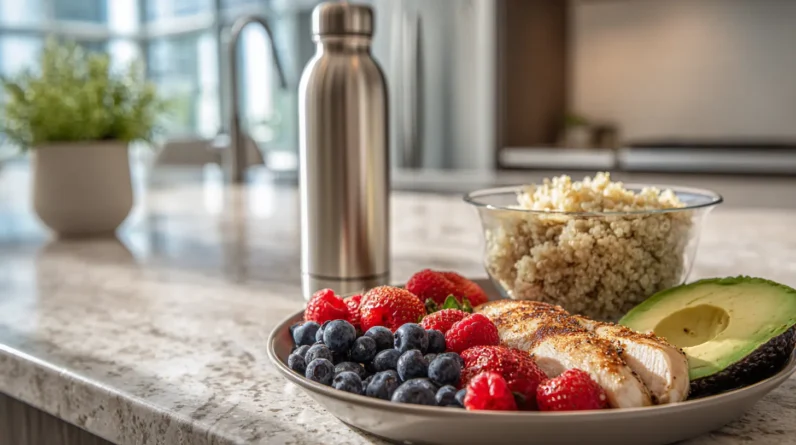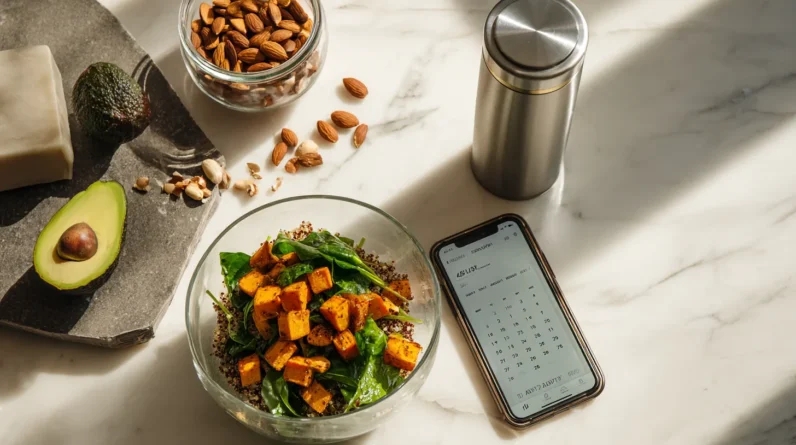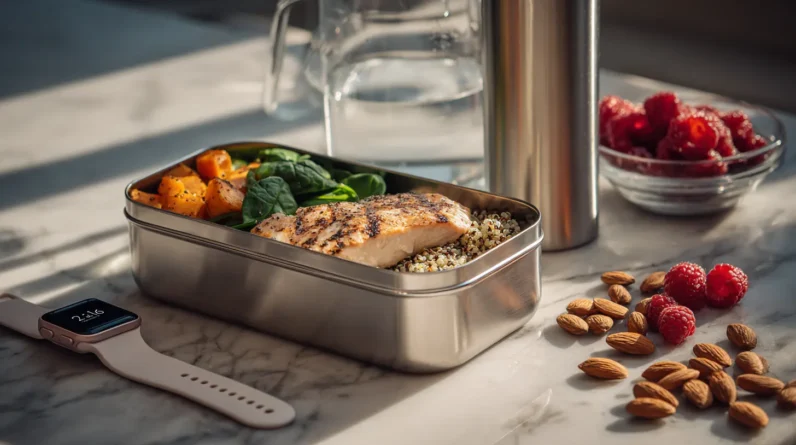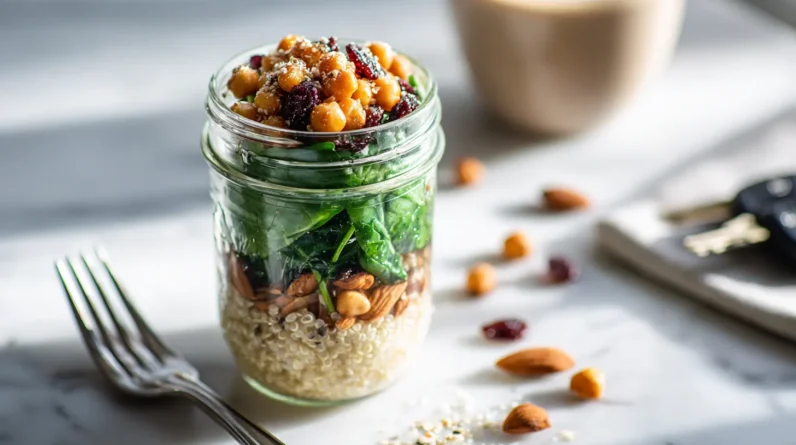
As women, we understand that a well-nourished body is the foundation of a healthy, happy life. To maintain energy, vitality, and overall well-being, we need to prioritize essential nutrients. Calcium is essential for fortifying our bones and preventing osteoporosis. Iron-rich foods combat fatigue and support oxygen transport. Omega-3 fatty acids impact brain function, mental well-being, and skin health. Folate is important for preventing birth defects and supporting fetal development. Fiber aids digestion and promotes regular bowel movements. By understanding these nutrition essentials, we can take control of our health and unleash our full potential – and there’s more to explore on this journey to nourishing from within.
Calcium for Bone Health
As we build and maintain our skeletons, calcium plays a starring role in fortifying our bones and shielding us from the brittle grip of osteoporosis. We need to prioritize calcium intake, especially as women, to support strong bones and prevent bone-related issues.
Dairy products like milk, yogurt, and cheese are excellent sources of calcium, but we can also turn to non-dairy options like fortified plant milks, tofu, and leafy greens. Vitamin D is essential for calcium absorption, so we should make sure we get sufficient sunlight exposure or consider supplementation if needed.
Iron-Rich Foods for Energy
We need iron-rich foods to combat fatigue and support oxygen transport in our bodies, making them essential for maintaining energy levels and overall well-being.
As women, we’re more prone to iron deficiency anemia, particularly during our childbearing years, due to menstrual blood loss. Fortunately, including iron-rich foods into our diets can help prevent this issue.
We can opt for lean meats, poultry, seafood, beans, and fortified cereals. As vegetarians, we can incorporate plant-based sources like spinach, lentils, quinoa, and tofu.
To maximize iron absorption, we can pair these foods with vitamin C-rich foods like citrus fruits, bell peppers, and strawberries.
Omega-3 Fatty Acids Benefits
By incorporating omega-3 fatty acids into our diets, we can reap a multitude of benefits that extend far beyond heart health, impacting our brain function, mental well-being, and even our skin. These essential fats support hormonal balance, which is particularly important for pregnant women and their reproductive health.
By adopting dietary habits rich in omega-3 fatty acids, we can maintain overall health and well-being. Fatty fish like salmon and mackerel are excellent sources, while vegetarians and vegans can opt for plant-based sources like flaxseeds, chia seeds, and walnuts.
Regular consumption of omega-3 fatty acids may also benefit our skin, reducing inflammation and maintaining moisture levels. By making conscious choices to include these healthy fats in our diets, we’re investing in our long-term health and vitality.
Folate and Pregnancy Nutrition
While omega-3 fatty acids support our overall health, a different nutrient takes center stage during pregnancy: folate, a B vitamin that plays an essential role in preventing birth defects and supporting the developing fetus.
As we navigate pregnancy, we need to prioritize folate intake to prevent neural tube defects and guarantee our baby’s healthy development.
Here are the essentials we need to know:
1. Adequate folate intake: Aim for 600 micrograms daily from supplements or fortified foods to support DNA synthesis and cell growth.
2. Food sources: Leafy greens, citrus fruits, beans, and fortified cereals are all rich in folate.
3. Preventing anemia: Folate helps prevent anemia, a common issue during pregnancy.
4. Consult a healthcare provider: Get personalized folate recommendations for a healthy pregnancy.
Fiber for Digestive Health
As women, we require a daily dose of fiber to maintain a healthy digestive system. A targeted intake of 25 grams per day can have a profound impact on our overall well-being. Fiber, a type of carbohydrate our bodies can’t digest, aids in digestion and promotes regular bowel movements. We can find it in foods like fruits, vegetables, whole grains, nuts, and seeds.
High-fiber diets reduce the risk of constipation, diverticulitis, heart disease, and certain cancers. By consuming adequate fiber, we support a healthy gut microbiome, enhance nutrient absorption, and contribute to overall digestive wellness.
Conclusion
As we nourish our bodies from within, we’re weaving a rich tapestry of health, thread by thread.
By prioritizing calcium for strong bones, iron for boundless energy, omega-3s for radiant minds, folate for healthy pregnancies, and fiber for smooth digestion, we’re crafting a masterpiece of wellness.
With every bite, we’re investing in our wholeness, building a strong foundation for a vibrant, thriving life.







